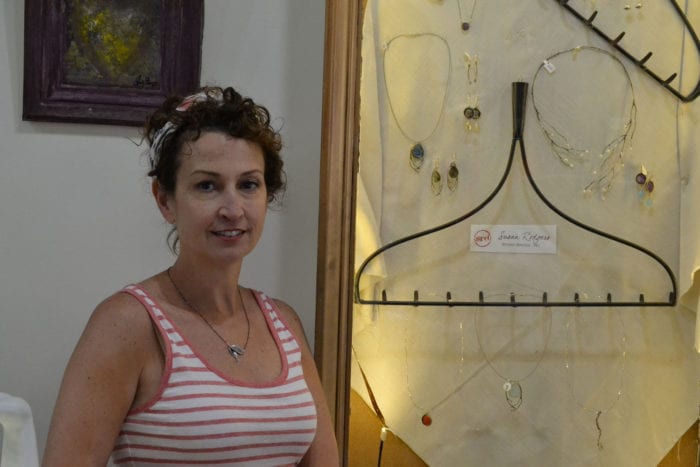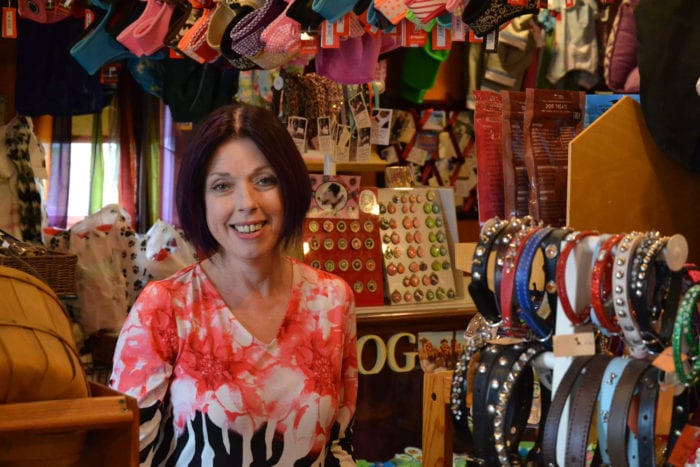Susan Rodgers had her storefront on East Main Street in Port Jefferson for seven years. But because of the COVID-19 crisis, she decided it was time to change shape and focus on online sales for her Susan Rodgers Designs business.
“The numbers were going continuously down,” she said. “So, I decided to react and be proactive.”
Rodgers, a jewelry artisan known for her delicate and beautiful designs first opened her original store in Sayville 10 years ago. Three years later, she moved to the North Shore, settling in the village of Port Jefferson.
The Stony Brook resident said that while the village helped her grow her clientele, the pandemic made it harder to stay afloat because of high rent prices and less customers shopping. She made the hard decision to close her shop and focus on e-commerce at the end of August. She officially closed her door in mid-September.
“It killed me because I was there for seven years but, as the years went on, I saw my site doing better than my store,” she said. “It made me realize I don’t need 800 square feet to show my work.”
Bernie Ryba, regional director of the Small Business Development Center at Stony Brook University, said that Rodgers isn’t the only small business owner to focus on online sales during the pandemic.
“Businesses that were reluctant to be more accepting of social media marketing and making sales over the internet are now much more willing to do so,” he said. “We’ve really had a bump in internet retail and also the use of social media marketing.”
Ryba added that business owners during COVID-19 realized that taking on more debt wasn’t the best option, opting to check out of their leases. “Banks are working with more industries,” he said, “But more small businesses are trying not to take on more debt.”
And that’s why Rodgers decided to leave. “Every month was $4,000 just to keep everything afloat,” she said. “If it wasn’t for the pandemic, I could have hired more people to help out. … It was a tough decision, but I know I made the right choice.”
Now she’s working out of her home in Stony Brook with one assistant. By saving money on rent and by being home, she’s able to focus on her online sales, which have started booming.
“Working on social media, contacting buyers … these are the things I never had the time to do before,” she said. “During all of this, I was able to fine-tune everything that I already had.”
Although it’s working out now, it was a heartbreaking experience to close her store, nonetheless. “I had to make a decision with my head and not my heart,” she said. “The sales aren’t there, it’s hard — and for my small business owner friends, too.”
Rodgers said that even with Phase 4 reopening, she still had customers who wouldn’t come out and shop because they were still too nervous. Now her customers can shop in the comfort of their own homes.
“I’m still here,” she said. “I’m just different for now.”








